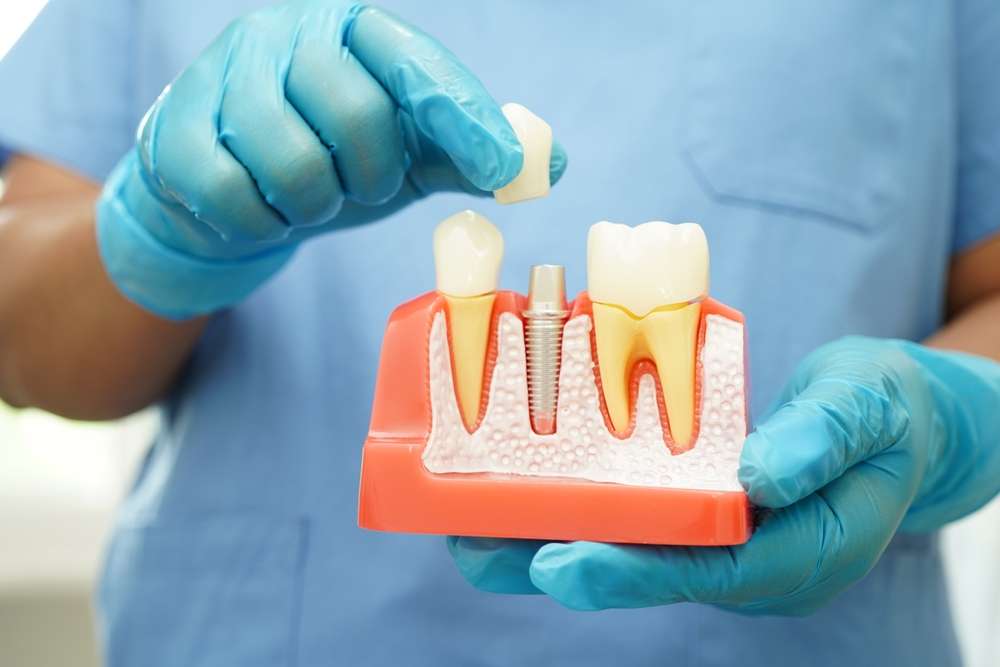Screwless Dental Implants and What They Might Cost
Screwless dental implants offer a different attachment method that may affect comfort and long-term fit. This overview looks at how pricing can vary with full mouth options the pros of screwless models and what to consider when comparing permanent dental implant costs.

Dental implant technology has evolved significantly over recent years, with screwless implants emerging as a noteworthy alternative to traditional screw-retained systems. These innovative devices use different attachment mechanisms, such as cement retention or magnetic connections, to secure prosthetic teeth to the implant posts. The absence of screws can simplify both the surgical procedure and long-term maintenance requirements.
What Are Screwless Dental Implants?
Screwless dental implants function without the traditional screw mechanism used to attach the crown or prosthetic tooth to the implant post. Instead, they rely on alternative retention methods such as cement bonding, friction fit, or magnetic attachment systems. The implant post itself is still surgically placed into the jawbone, where it integrates with the bone tissue through a process called osseointegration. However, the final restoration is secured using methods that eliminate the need for access holes or screw channels in the visible crown surface.
This design approach offers several practical benefits, including improved aesthetics since there are no screw access holes to fill, and potentially simpler maintenance procedures. The cement-retained option, for instance, creates a seamless connection between the implant and crown, while magnetic systems allow for easy removal when professional cleaning or adjustments are needed.
Understanding the Cost of Full Mouth Dental Implants
Full mouth dental implant procedures represent one of the most comprehensive tooth replacement solutions available. The cost varies significantly based on several factors, including the number of implants required, the complexity of the case, and the specific technique employed. Traditional full mouth reconstructions might require 6-8 implants per arch, while some advanced techniques can achieve similar results with fewer implants.
Geographic location plays a substantial role in pricing, with urban areas typically commanding higher fees than rural locations. Additionally, the experience level of the dental surgeon and the type of facility where the procedure is performed can influence overall costs. Patients should also consider ongoing maintenance expenses and potential future adjustments when calculating the total investment.
Pros of Screwless Implants Explained
Screwless implant systems offer distinct advantages that appeal to both patients and dental professionals. The absence of screw access holes creates a more natural appearance, particularly important for front teeth where aesthetics are paramount. This design eliminates the need to fill access holes with composite material, which can discolour over time or require replacement.
Maintenance procedures are often simplified with screwless systems. Cement-retained crowns, for example, can be cleaned like natural teeth without concern for loosening screws. Magnetic retention systems allow for easy removal during professional cleanings while maintaining secure attachment during normal use. The reduced complexity of the restoration process can also lead to shorter appointment times and potentially lower laboratory costs.
Permanent Dental Implants Cost Details
Permanent dental implant costs encompass several components beyond the initial surgical placement. The implant post itself, typically made from titanium or titanium alloy, represents one portion of the total expense. Additional costs include the abutment (the connecting piece between implant and crown), the crown or prosthetic tooth, and all associated surgical and laboratory fees.
Pre-surgical procedures such as bone grafting or sinus lifts may be necessary in cases where insufficient bone structure exists to support the implant. These preparatory treatments add to the overall investment but are essential for long-term success. Post-surgical care, including follow-up appointments and any necessary adjustments, should also be factored into the total cost consideration.
| Provider Type | Service Offered | Cost Estimation (£) |
|---|---|---|
| NHS Dental Practices | Basic implant treatment | £2,500 - £3,000 |
| Private Dental Clinics | Standard single implant | £1,800 - £3,500 |
| Specialist Implant Centres | Advanced screwless systems | £2,200 - £4,200 |
| University Dental Schools | Supervised implant treatment | £1,200 - £2,500 |
Prices, rates, or cost estimates mentioned in this article are based on the latest available information but may change over time. Independent research is advised before making financial decisions.
Comparing Affordable Implants Prices
When comparing implant prices, patients should evaluate the complete treatment package rather than focusing solely on the lowest advertised price. Comprehensive treatment plans should include all necessary procedures, from initial consultation through final crown placement. Some providers offer package deals for multiple implants or full mouth reconstructions that can provide better value than individual implant pricing.
Quality considerations are paramount when comparing options. Lower-cost alternatives may use different materials or techniques that could affect long-term success rates. Patients should inquire about warranty coverage, follow-up care policies, and the experience level of the treating dentist. Additionally, financing options and payment plans can make higher-quality treatments more accessible while spreading costs over manageable timeframes.
The choice between screwless and traditional screw-retained implants ultimately depends on individual circumstances, aesthetic preferences, and budget considerations. Consultation with qualified dental professionals can help determine the most appropriate treatment approach for each patient’s specific needs and expectations.
This article is for informational purposes only and should not be considered medical advice. Please consult a qualified healthcare professional for personalized guidance and treatment.




